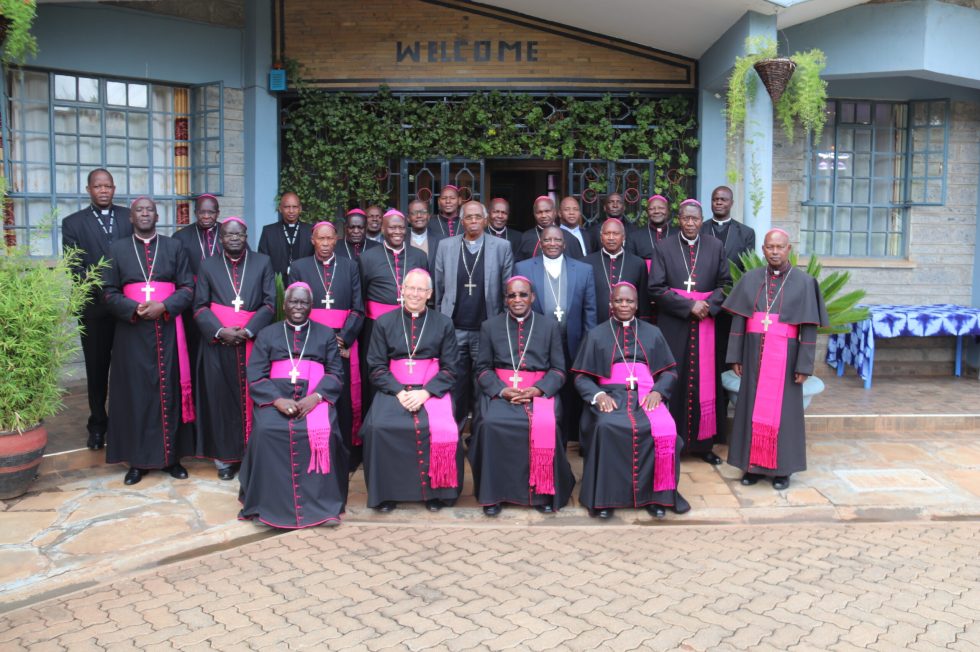
Education in Kenya: Between Adolescent Needs and Church Values
The Kenya Conference of Catholic Bishops (KCCB) has censured the proposed sex education book for seventh graders
Schools, families, the Church and other institutions have always played a crucial role in guiding young people from childhood to adulthood. Helping young people grow, discover their identity and realize their dreams depends above all on the success of adolescence, a period of life marked by significant physical and emotional changes. The question that is often asked is: how to succeed in adolescence, how to help young people succeed in their lives, in their dreams?
Adolescent success is about helping young people manage the many challenges and decisions they face, set goals for their lives, and deal with the obstacles they encounter on the road to adulthood. It is an essential support for discussing this special and important time in their lives with young people, which can help them adopt positive behaviors.
Sex education is a key issue during puberty and adolescence

Many educators have developed a range of topics to educate and support this journey. This information is grouped around physical and emotional changes related to self-knowledge, body knowledge, the gift of sexuality, the wonder of life, the control of life, today’s man and woman, falling in love, sexual orientation, personal fulfillment, etc.
Today, changes in the proposed topics have a strong influence on people’s sex education and cultural values.In this regard, there is a lack of textbooks that do not take into account the evolution and development of the individual (child, adolescent, young person) and the content to be provided for each age group. The appeal is addressed to all educators, parents and teachers to be much more careful in offering subjects respecting cultural values, age and development of the individual.
Kenyan bishops censure proposed sex education book for elementary school pupils
The KCCB Education Commission has pointed the finger at health education textbooks from two publishers that seek to “sexualize the school environment.” In a statement approved by the Association of Catholic School Principals, the KCCB said the books published by the Kenya Litterature Bureau and Oxford University Press are part of a well-orchestrated program to encourage the use of contraception among younger students. Based on the position of Pope Paul VI’s Encyclical “Humanae Vitae” (against contraception), the bishops deemed the books illegal and inappropriate for elementary school children.
Kenya faces high rates of unwanted pregnancies and transmission of sexually transmitted infections (STIs), including HIV, among adolescents. A 2022 study found that two-thirds of 345,000 teen pregnancies (aged 15-19) are unwanted, and only 10 percent of teens who give birth return to school. Bishop Paul Kariuki, president of the Kenya Bishops’ Conference, pointed out that the content of the books offered for pupils is contrary to the Ministry of Education’s policy against exposing children to inappropriate content.
This is despite the fact that early pregnancies are associated with larger families and poor sex education that can help young adolescents reach maturity, thus contributing to a vicious cycle of poverty, school dropout and thus low education and high fertility without accountability.
The KCCB argued that if no action is taken, the promotion of family planning in basic education could lead to an increase in teenage abortions. The clergy implored Catholic school principals to continue to instill good moral values in students.” The mischievous and clandestine introduction of comprehensive sex education is at odds with the idea sold to Kenyans that the skills-based curriculum is values-based and that any education provided will be age-appropriate,” Bishop Mark Kadima explained.
Aside from calling the bishops conservative and self-righteous, or considering Catholic education conservative in some circles, this is nothing more than a call for parents, educators, and all those responsible for accompanying adolescents through the transition phase to exercise caution in the transmission of educational content.
